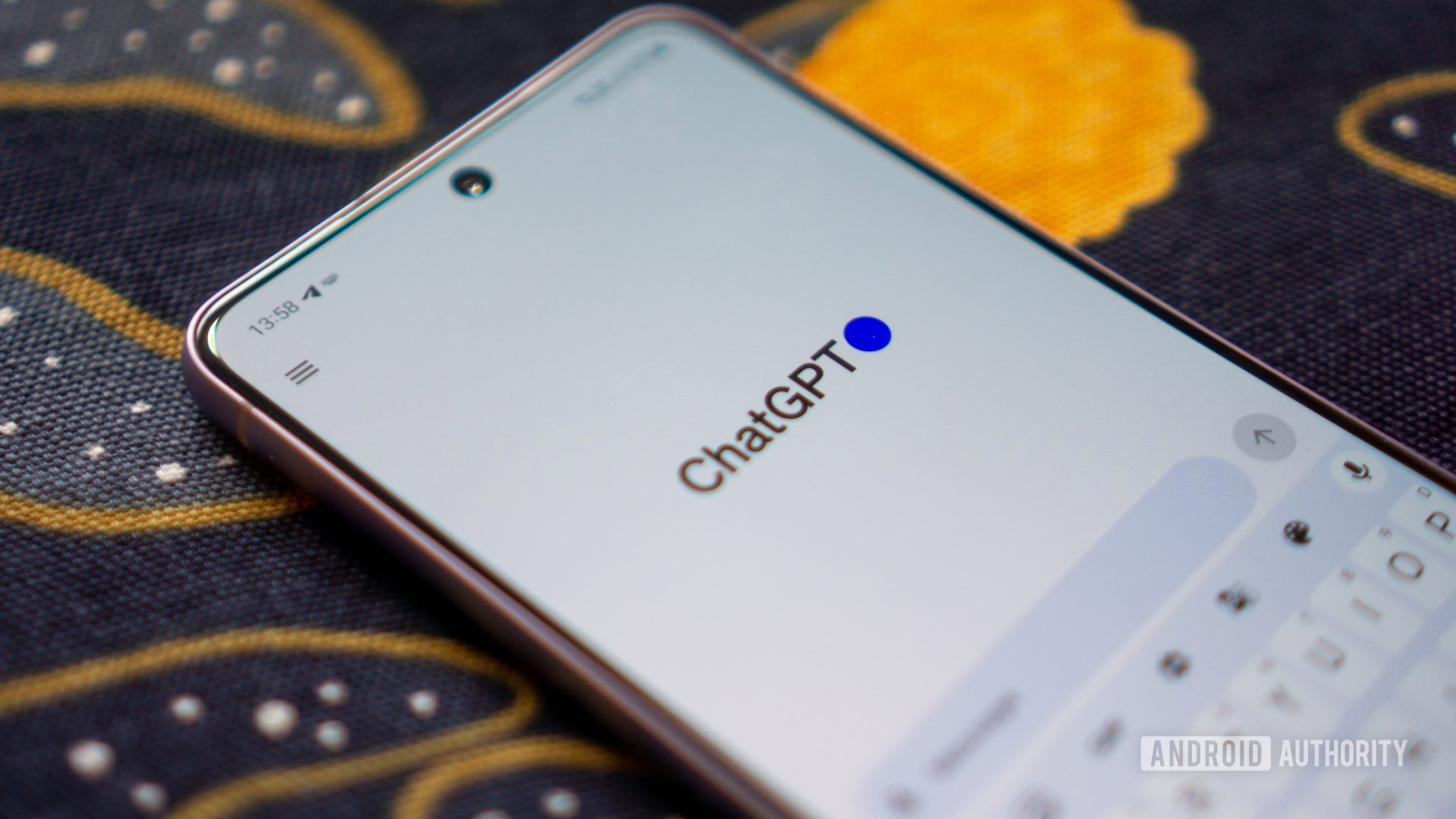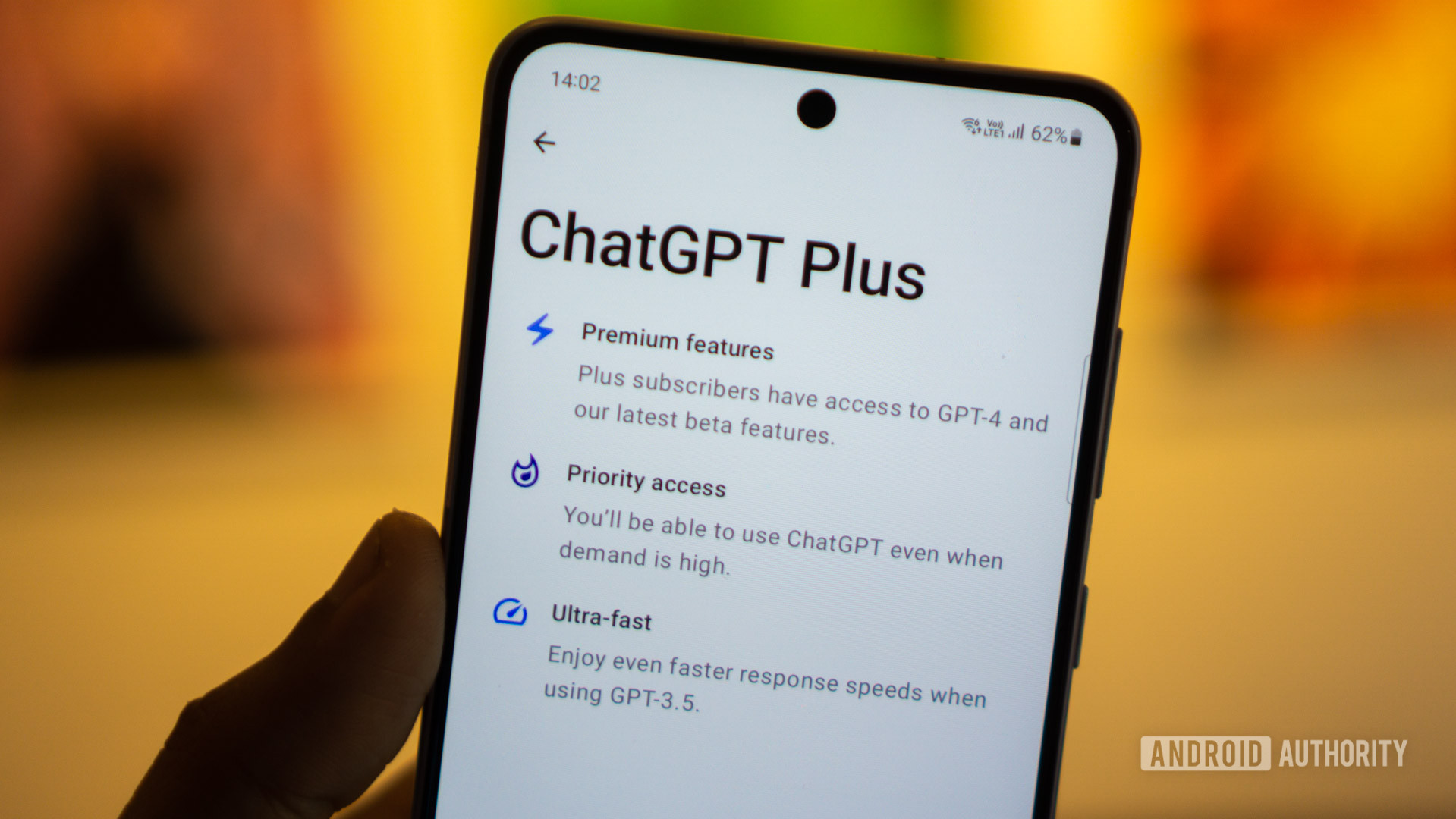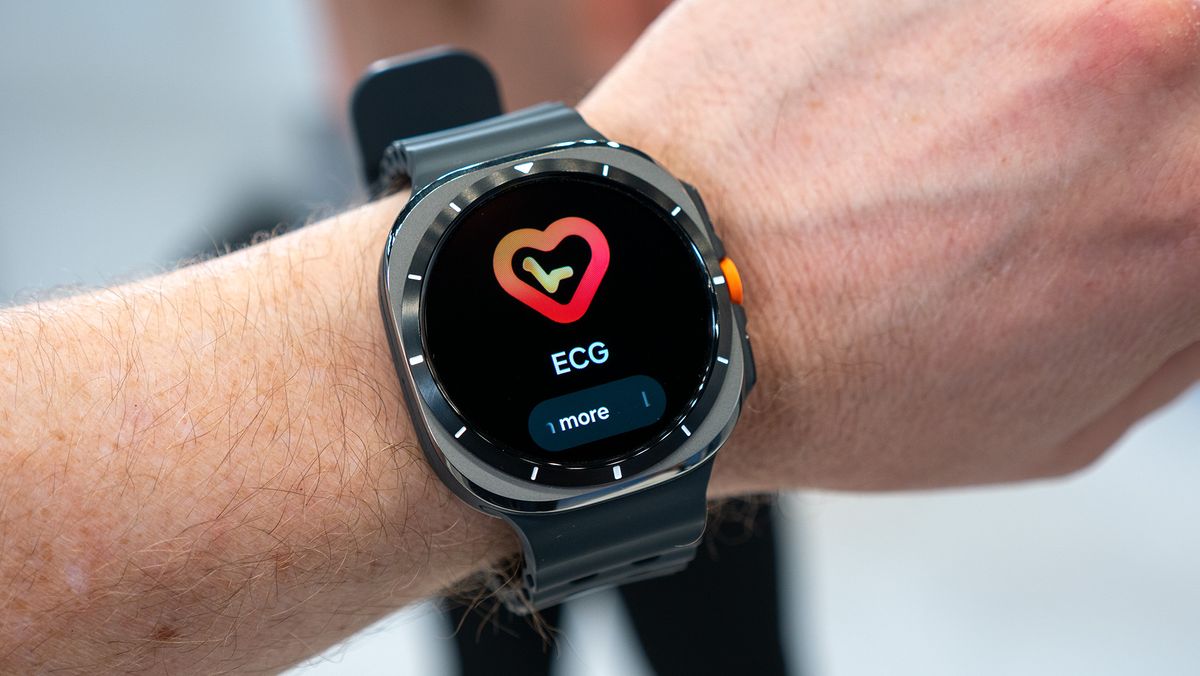This is why I use two separate ChatGPT accounts

Calvin Wankhede / Android Authority
I’ll admit it: I’m a bit of a recovering AI addict. While I’ve had mixed feelings about AI from the start, as someone who spends a lot of time lost in thought, I’ve found it can be a useful tool for ideation, proofreading, entertainment, and much more. Recently, I’ve started scaling back my usage for reasons beyond the scope of this article, but for a while, I actually had two paid ChatGPT accounts.
I know what you’re thinking, and you’re right, it’s a bit excessive. Still, in some cases, it really can make sense to have two accounts.
Would you ever consider having two AI accounts at once?
18 votes
It all started when I found myself constantly hitting usage limits for my personal projects and entertainment, leaving me in a lurch when I needed AI for work-related tasks. For those who don’t know, the ChatGPT Plus tier has different limits depending on the model. Some like the basic GPT 4o are virtually unlimited, while others have a firm daily or weekly count. For example, GPT 03 lets you send 100 messages a week, while 04-mini-high gives you 100 messages a day, and so 04-mini gives you 300 a day. I tend to rely the most on 03 and 04-mini-high outside of basic stuff like editing, because it is actually willing to tell you that you’re wrong, unlike many of the other models that are people-pleasers to the extreme. Realizing I was blowing through my message limits long before the week was up, I immediately started considering my options, including adding a Gemini subscription instead of ChatGPT. Truthfully, I had tried both before and always found myself coming back to ChatGPT, so the decision was basically made for me.
At that point, I began manually migrating some of my old chats over to the new account, basically copying and pasting core logs so ChatGPT and deleting records from my original mixed-use account. As a freelancer, my goal was to make sure anything related to clients was separated from my personal projects, which were mostly entertainment or experimental (like messing around with the API and similar tools just to learn).
It wasn’t even just about the limits. I found this separation helpful for more than just avoiding blowing through my limits on the wrong thing. As you might know, ChatGPT can learn your preferences. It’s not exactly learning or memory in the traditional sense, but instead it basically creates an abstract pattern of your communication styles and preferences. Let’s just say my way of talking about personal matters is very different from my professional voice. Lots of cursing and the like.
After splitting my usage, I noticed that ChatGPT actually became better suited for the specific tasks I was performing on each account, as it understood my preferences for each use case a little better. That’s probably an oversimplification of how ChatGPT works, but you get the idea.
These days, I no longer pay for two accounts since I don’t rely as heavily on ChatGPT or any AI tool anymore, but it’s useful to keep my old logs around, and so I still have a ChatGPT Plus account for business and another free account that is for personal use. This way, I also retain the option of renewing my paid subscription if my usage habits change again in the future.
How do you sign up for two accounts, and is this a TOS violation?

Calvin Wankhede / Android Authority
Think you could benefit from a second account? Signing up for two accounts is easy as long as you have at least two different email addresses. For payment, I used two different credit or bank cards, though it’s unclear if that’s really necessary. The bigger question is if it actually okay to do this, or will your accounts get suspended for violating policy?
When I first considered this, I did my research. According to the Terms of Service (TOS), there’s no firm rule against having two accounts as long as you aren’t purposely trying to circumvent usage limits. My first thought was, “Well, I kind of am” — after all, running out of limits was a big part of my problem. Still, by separating accounts, I was doing more than just trying to increase my limits.
By dividing business and personal/entertainment uses, I was also organizing information better, and I was making sure I didn’t use up all my limits on personal stuff that would hurt my work productivity. Before, I’d burn through my limits pretty quickly on silly time-wasting stuff like writing alternate timeline fiction and other entertainment.
Ultimately, having two accounts can be a bit of a gray area, but as long as you’re careful about how and why you use each account, it’s not technically against the TOS. For what it’s worth, ChatGPT agrees — but with some caveats. As the AI explains, two accounts are fine if:
- Your main reason for separating is genuinely to keep business and personal activities distinct—billing, data, privacy, and not accidentally using up the business quota on personal stuff. This is a reasonable, defensible use.
- If you had one account and were hitting limits due to mixed usage, it’s normal (and frankly smart) to create a second account for business, especially if your work depends on reliable access.
As noted by the ChatGPT bot itself, the TOS is mainly aimed at stopping people from abusing the system by creating multiple accounts to stack free or paid uses, or for heavy API stacking. Reading the actual TOS seems to give the same picture as well.
Could this kind of “gray area” usage still attract attention from ChatGPT staff? Maybe, but as long as you’re genuinely separating your use cases, there shouldn’t be any major issues. In fact, it’s common practice to create accounts specifically for business use, including for tax purposes, and so I’d wager this is probably more common than many realize.
Source link







